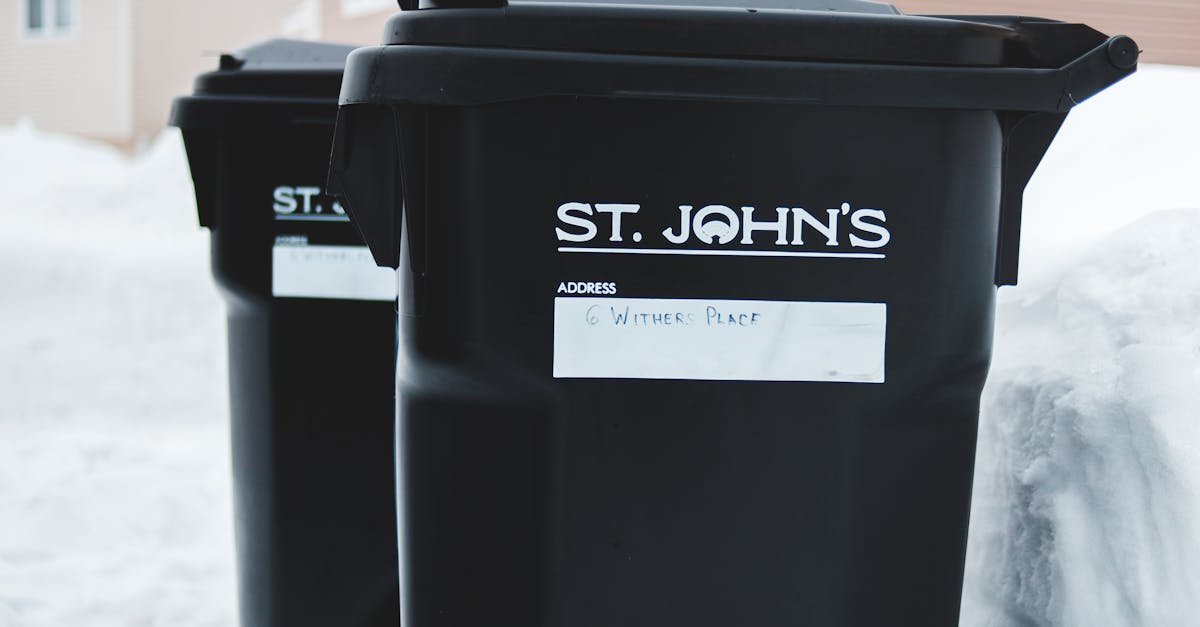What is the most common dumpster rental?

Table Of Contents
Duration of a Dumpster Rental
When arranging for a dumpster rental, it is essential to consider the duration you will need it. Standard rental periods often range from three to seven days, providing ample time for most residential and commercial projects. However, some companies offer flexible options that allow for longer rentals, which is beneficial for larger jobs or ongoing renovations.
Extensions are generally available as well but may come with additional fees. Many rental services offer the option to call and extend your rental period should you find yourself needing more time. It is advisable to communicate your expected timeline upfront to ensure a seamless experience and avoid any penalties or interruptions in service.
Typical Rental Periods and Extensions
Most dumpster rental companies offer various standard rental periods, typically ranging from 3 to 14 days. Many customers choose a one-week duration for home renovation projects or large cleanouts. If projects take longer than expected, renters can often request an extension. Some companies may allow extending the rental period for an additional fee, while others may have a cap on the maximum rental duration.
Understanding this flexibility can help customers effectively plan their projects. It is advisable to discuss potential extension fees when initially booking the dumpster. If the expected time frame is uncertain, opting for a slightly longer rental period can alleviate stress. Clear communication with the rental provider ensures that any adjustments can be easily managed without unnecessary complications.
Environmental Impact of Dumpster Rentals
Dumpster rentals play a significant role in managing waste and can have varying effects on the environment. When used properly, these services help divert large amounts of trash from landfills. This diversion can significantly reduce greenhouse gas emissions associated with waste decomposition. However, improper disposal efforts can lead to adverse environmental consequences, such as soil contamination and increased pollution.
The management of waste through dumpster rentals also emphasizes the importance of recycling and composting. Many rental services now offer bins specifically designed for recyclable materials, encouraging consumers to separate waste at the source. By promoting responsible disposal practices, dumpster rentals foster a culture of sustainability that benefits both communities and the planet.
Responsible Disposal Practices
Proper disposal of waste is essential to protect the environment and promote sustainability. Individuals and businesses should familiarize themselves with local regulations regarding hazardous materials. Items like batteries, electronics, and chemicals often require special handling due to their potential harm to the ecosystem. Ensuring that such materials are disposed of correctly can prevent contamination of land and water sources.
It is also important to sort recyclable materials before placing them in a dumpster. Many waste management companies provide guidelines on acceptable items, helping to divert reusable materials from landfills. By adhering to these practices, waste management efforts can be more efficient, promoting a cleaner and safer environment for future generations. Education on responsible disposal contributes significantly to community awareness and enhances collective efforts towards sustainability.
Tips for Loading a Dumpster Efficiently
Efficiently loading a dumpster maximizes space and minimizes costs. Start by breaking down large items. Disassembling furniture or other bulky materials allows for better stacking. Arrange heavier items at the bottom of the dumpster to create a stable foundation. Position smaller, lighter items on top to fill any gaps. This technique not only optimizes space but also helps prevent damage to fragile materials.
It’s important to load items in a way that distributes weight evenly. Keep the contents level to avoid overfilling one side, which can lead to safety hazards during transport. Take advantage of vertical space by stacking items securely. Avoid placing materials in a haphazard manner. Ensuring that items are loaded tightly together will make the most of the allotted dumpster capacity.
Best Practices for Space Management
Maximizing space in a dumpster requires strategic loading techniques. Start by breaking down large items like furniture and cardboard boxes to create more available space. Placing heavier items at the bottom ensures stability and allows for better use of vertical space. Arrange materials to minimize gaps between them. This approach not only saves room but also promotes safety during the disposal process.
Consider the type of materials being disposed of when organizing the dumpster. Group similar items together; for instance, keep all construction debris in one section and yard waste in another. This helps in managing weight distribution and simplifies the sorting of materials later. Avoid overloading the dumpster beyond its capacity to prevent extra charges and comply with safety regulations. Thoughtful organization can lead to a more efficient and cost-effective rental experience.
FAQS
What is the most common size of dumpster rented?
The most common size of dumpster rented is typically a 10 to 20 cubic yard container, which is suitable for various projects like home renovations and cleanouts.
How long can I rent a dumpster for?
The typical rental period for a dumpster ranges from 3 to 7 days, but many companies offer extensions if needed for an additional fee.
What types of materials can I dispose of in a dumpster?
Most dumpsters can be used for general waste, construction debris, yard waste, and household items. However, hazardous materials like chemicals, batteries, and electronics are typically prohibited.
How can I load a dumpster efficiently?
To load a dumpster efficiently, break down larger items, distribute weight evenly, and avoid overfilling it. It's also helpful to place heavier items on the bottom and lighter items on top.
Are there any environmental impacts associated with dumpster rentals?
Yes, dumpster rentals can have environmental impacts, but responsible disposal practices, such as recycling and proper waste segregation, can significantly minimize these effects.